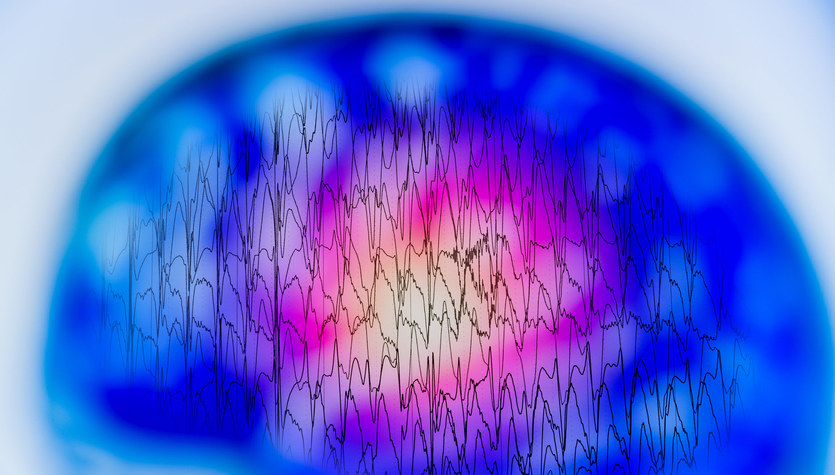Register of neurobiologists Brain activity of an 87-year-old man with epilepsy at the time of death. The data was collected 30 seconds before and after his heart stopped beating as a result of a heart attack. The type of brain waves recorded is surprising, because it turns out that they accompany us every day.
A study published in Frontiers sheds new light on the brain’s potential role in death and shows where these vivid memories during death experience (NDE) come from.
What happens in the brain at death? During so-called death experiences (NDE) It has been bothering scientists for a long time. Recent research shows that The brain stays active all the timeEven after cardiac arrest, which may indicate that consciousness is not as “rapid” as it seemed long ago.
When an 87-year-old man developed epilepsy, Dr. Raul Vicente’s team from the University of Tartu in Estonia decided to permanently connect him to an EEG machine in order to Electroencephalogram measurement. Unfortunately the patient had a heart attack and died. This unexpected event allowed scientists for the first time in history Recording of dying human brain activity.
We measured 900 seconds of brain activity at the time of death and focused on investigating what happened in the 30 seconds before and after cardiac arrest. We observed changes in a certain range of nerve oscillations, the so-called gamma oscillations, but also other oscillations, such as delta, theta, alpha and beta oscillations, said Dr. Ajmal Zammar, a neurosurgeon at the University of Louisville in the United States, who organized the study.
brain vibrations (commonly known as brain waves) are patterns of rhythmic activity in the brain – they happen all the time in all people. Different types of oscillations (including gamma) are involved in different cognitive functions, such as focus, dreaming, meditation, information processing, and conscious perception.
By generating oscillations related to memory retrieval, the brain can recreate the last memory of important life events just before death, similar to those described in death experiences. Dr. Zammar added that these findings challenge our understanding of exactly when life ends and generate important follow-up questions such as those regarding when to donate organs.
Although this is the first study to measure brain oscillations at the time of death, Gamma waves have been observed before under similar conditions in mice. This means that at the time of death, the brain reorganizes its work, recreating the most important moments of fleeting life.
The scientific community deals with data collected remotely, because the study concerns only one patient. Dr.. oboist Planning to investigate more cases.
“As a neurosurgeon, I sometimes deal with loss. It is indescribably difficult to pass on news of death to desperate family members. Through these studies, we can learn that even though our loved ones close their eyes and are ready to leave this world, Dr. Zammar concluded, Their brains can recreate some of the most beautiful moments in their lives.
Read also: The plastic of the epidemic is engulfing the world. Medical waste is a big problem

Echo Richards embodies a personality that is a delightful contradiction: a humble musicaholic who never brags about her expansive knowledge of both classic and contemporary tunes. Infuriatingly modest, one would never know from a mere conversation how deeply entrenched she is in the world of music. This passion seamlessly translates into her problem-solving skills, with Echo often drawing inspiration from melodies and rhythms. A voracious reader, she dives deep into literature, using stories to influence her own hardcore writing. Her spirited advocacy for alcohol isn’t about mere indulgence, but about celebrating life’s poignant moments.










